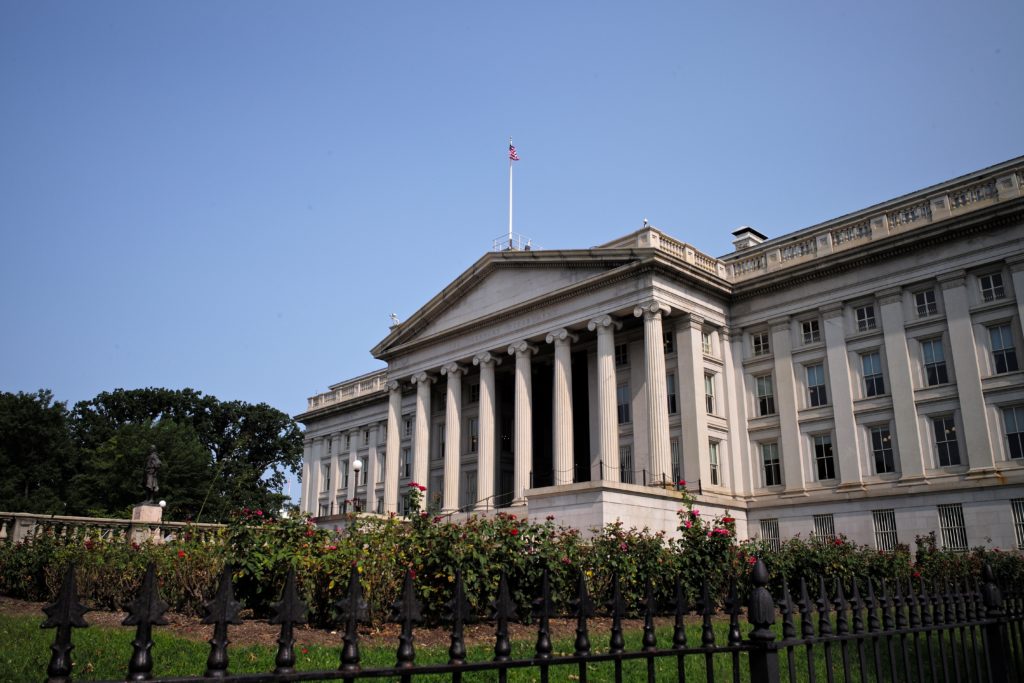The Peninsula
Will the New Treasury Financial Sanctions Against North Korea Work?

By Phil Eskeland
Economic sanctions to achieve foreign policy objectives do not have a long track record of success. One analysis of 174 case studies going back to just prior to World War I by the respected Peterson Institute for International Economics concluded that economic sanctions succeeded just 34 percent of the time. However, the success rate for unilateral economic sanctions drops even further because other nations fill the gap left by the void of U.S. economic engagement. Thus, will last week’s action by the U.S. Treasury Department join the list of failures of unilateral sanctions?
The goal of any sanction ultimately determines their level of success. If the aim is to get the North Koreans to denuclearize, then that may be a high hurdle to overcome. If North Korea could withstand a devastating famine in the 1990’s, the regime may have enough resolve to weather this next level of heightened sanctions.
However, unlike past unilateral economic U.S. sanctions, Treasury’s action may have enough “punch” because of the unique position that U.S. financial institutions play in clearing international transactions and the prominent role of the U.S. dollar in the global economy. There was already one notable successful use of sanctions in 2005 when Treasury also used the same provision in the Patriot Act to target Banco Delta Asia (BDA), a Macao-based institution that handled trade and financial transactions, including sales of gold bullion for various North Korean entities. The Macao government froze about $25 million in accounts related to North Korea and cut all ties with the DPRK. It caught the attention of the North Korean leadership in a hurry.
These Treasury sanctions are a type of secondary boycott where financial institutions around the world will have to choose between servicing North Korean interests or have their other transactions cleared worldwide. In its finding, Treasury states that “(w)hile none of North Korea’s financial institutions maintain correspondent accounts with U.S. financial institutions, North Korea does have access to the U.S. financial system through a system of front companies, business arrangements, and representatives that obfuscate the true originator, beneficiary, and purpose of transactions. We assess that these deceptive practices have allowed millions of U.S. dollars of DPRK illicit activity to flow through U.S. correspondent accounts.” (emphasis added) Thus, there is legitimate jurisdiction for the U.S. to pursue this matter.
Yet, this Treasury action it not completely unilateral because it builds upon recently enacted enhanced United Nations sanctions – to which China and Russia agreed to on March 2, 2016 – that require members states to “terminate…joint ventures, ownership interests and correspondent banking relationship with DPRK banks within 90 days.”
As some observers have already noted, Treasury’s action will primarily affect smaller banks in the northeast region of China. North Korea may try to find new locations to process their transactions but these sanctions will hopefully deter other institutions from accepting any lucrative offers from North Korea. Financial intelligence to prevent DPRK money laundering through new channels will be the key to enforcement.
Therefore, will these new sanctions proposed by Treasury work? Nothing is guaranteed. North Korea has endured hardships before. Yes, North Korea may try to further conceal their financial dealings. They may move to a barter economy. But all these sanctions should ratchet up the pressure on the North Korean regime. The primary point to watch is the state of the North Korean economy. Will some key indicators deteriorate, such as the value of the North Korea won or the growth in GDP? Will conspicuous consumption in Pyongyang decline? Will North Korea react similarly to the BDA sanction imposed over 10 years ago? If there are no significant impacts, it will show that the weak link in this chain is still China, more worried about stability on the Korean peninsula versus a nuclear-armed North Korea. If there are no changes, it could also demonstrate that North Korea has learned from its BDA experience by preparing for this day with alternate money sources.
Earlier this week, the International Atomic Energy Agency (IAEA) said that North Korea reopened its plant to produce more plutonium, a central ingredient in nuclear weapons. A senior North Korean envoy, Ri Suyong, recently told Chinese Communist Party officials “that his country would continue to expand its nuclear arsenal and had no intention of giving up the weapons.” So far, the sanctions are not having an impact on North Korea behavior. But we are just in the initial stages. Treasury’s action is the best designed and most comprehensive sanctions to date to have maximum impact to complement the enhanced U.N. sanctions.
Phil Eskeland is Executive Director for Operations and Policy at the Korea Economic Institute of America. The views expressed here are his own.
Photo from Roman Boed’s photostream on flickr Creative Commons.
